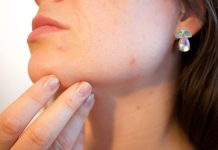Genes may make some women more susceptible to public pressing about the forms of the female body, imposing thinness as the standard of beauty, as claimed by US scientists, whose work is published in the International Journal of Eating Disorders.

Jessica Suisman from the University of Michigan, who is the lead author of the study, says we face information about the appeal of thinness every day, but it only affects the women who develop the so-called ideal internalization (the acceptance of other people’s judgments as personal beliefs), as published in the Wiley press release.
In her view, genetic factors may make some women more susceptible to this pressure.
To test this, the researchers examined the effects of idealization on pairs of twins. More than 300 pairs of female twins aged 12 to 22 participated in the study. The research team assessed how much the participants wanted to be like the beauties on TV, in movies or magazines.
Upon reaching the level of idealization, identical twins who had the same 100 % of the genes were compared with dizygotic twins, who shared only 50% of the genes.
The results showed that identical twins had closer results than dizygotic ones. Further analysis found that 43% of idealization occurs due to heredity, which means that the differences in women’s perceptions of thinness can be partly explained by genetics.
The ideals of beauty are also significantly influenced by the conditions in which the woman lives. They are even more important than cultural characteristics, the researchers note. So, in pairs of twins the desire to idealize thinness may be stronger if the girl is engaged in dancing or is a member of the company, where thinness is considered standard.










